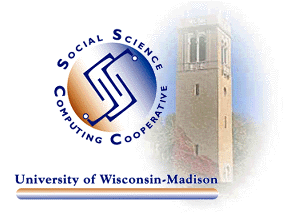
Update on ILOVE YOU Virus
Changes in Anonymous FTP
SSCC Account Renewal Now Underway
Address Change for Connecting to UNIX Disk Shares
Office 2000 Installations from DoIT's CDs
SSCC's Dial-In Service to be Eliminated June 30
The attachment is always a Visual basic Script. That means that the file name will always end in ".vbs" or ".vbe" (without the quotes). As of 10:45 this morning, we have a filter in place on SSCC's mail server that stops the delivery of any e-mail message that contains an attachment whose file extension is either .vbs and .vbe. This filter also stops the delivery of other commonly known viruses. When the mail server receives an infected message, it sends a message to Dan Bongert, our UNIX system administrator, and places the file in a special directory for Dan's inspection. If you are the intended recipient of such a message, the message will not be delivered but Dan will notify you with the details.
If you have any e-mail messages with attachments that you received between Wednesday and 10:45 this morning (when Dan activated the filter), do not read any attachments ending in ".vbs" or ."vbe". If your mail program does not display the file extensions for attachments, don't open the attachment from your mail program. Instead, contact the person who sent you the mail message and verify that it's a legitimate attachment.
Just receiving the mail and the attached file does no harm. If you remove the file without executing it (i.e. double-clicking on it), you will not infect your computer or spread the virus.
Anonymous users are only able to "put" files to the /incoming directory, and "get" is totally disabled from that directory. Instead, if someone "put"s a file in the /incoming directory for you, log into one of SSCC's UNIX computers and copy the file manually:
cd /usr/sysfolk/ftp/incoming
cp file_put_for_you ~
If you want to place a file onto the anonymous FTP site for others to "get", do this:
cd /usr/sysfolk/ftp/pub
mkdir username
cp ~/file_to_get /usr/sysfolk/ftp/pub/username
The /incoming directory will be cleaned out every few days. Complete documentation on FTP is available from Consultant or on-line.
Please note that you will need to complete the renewal form for EACH user name that you have on the SSCC system. Click here to renew your account.
The new address is \\sscunix\sharename. For example, for user mcdermot to connect to her UNIX home directory, she would enter \\sscunix\mcdermot in the dialog box that appears when you choose Map Network Drive from the Tools menu of Explorer.
You should also disconnect any mapped drives to the old address. Go to Explorer and choose Disconnect Network Drive from the Tools menu. Highlight the network drive containing \\norman in the path name and then click OK.
For detailed instructions on connecting to disk shares from Windows 95/98, refer to SSCC Pub. #5-8. NT users should refer to SSCC Pub. #5-11.
We have now documented an even better method of gaining access to PRIMO using a network protocol called "Virtual Private Networking" (PPTP) that does not require that you log in to DoIT's modem pool; it requires only that you get access to the Internet in some way. For example, you could use the basic WiscWorld dial-up to DoIT, or you could dial up a commercial Internet Service Provider, which may have local access numbers all over the world, or you could connect to the Internet via an Ethernet connection at a distant university.
Instructions for connecting to SSCC's PRIMO domain via DoIT's modem pool are in 5-13 (Windows 95/98) and 5-15 (Windows NT). Instructions for connecting via PPTP from anywhere in the world are in 5-14. All three documents are available online.
Go to previous editions of
SSCC News .
Go to the SSCC Home Page.
© 2000 University of Wisconsin Social Science Computing Cooperative